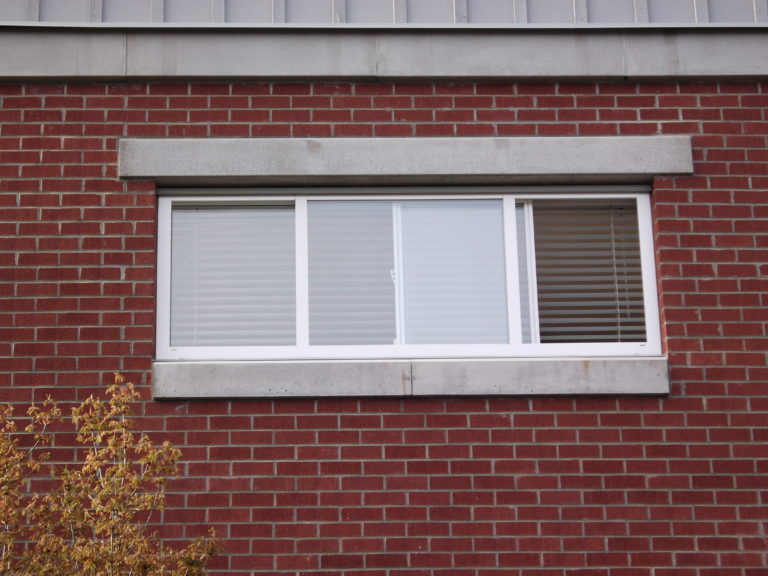
Lintel is a horizontal flexural member which spans over the openings in the walls for doors, windows, ventilators, cupboards etc. The load of masonry above the opening is transferred to the wall by flexural action of the lintel so that frames of doors, windows etc. are not unduly loaded. The end bearings for the lintel should be at least 200 mm. The width of lintels is same as that of wall.
Lintels of various materials are used. They are:
(a) Wood
(b) Stone
(c) Brick
(d) R.C.C. and
(e) Steel.
(a) Wood Lintel: It may be a single piece or may be assembled by joining 2 to 3 pieces. Sometimes the wooden lintels are strengthened by steel plates at top and bottom. Such lintels are called as flitched beams.
(b) Stone Lintels: Wherever stones are available stone beams are used as lintels. As stone is weak in tension they can be used only for small spans. Their depth is kept about 1/10 th span.Stones are cut to the width of wall and dressed before using as lintels.
(c) Brick Lintels: Well burnt, good quality lintels are laid on ends or edges to form lintels It needs temporary form work at the time of construction. The lintel is to
be cured for 7–14 days before formwork is removed. Such lintels are useful to span small openings.
(d) R.C.C. Lintels: It is possible to provide R.C.C. lintels of any span required in the building.They can be isolated or continuous over the openings. They are provided with suitable reinforcement—main reinforcements beings on lower side in the opening. Nowadays these lintels are used very commonly in buildings.
(e) Steel Lintels: Steel angles or rolled steel I-sections are used as lintels. Tube separators may be provided to maintain the spacing between the sections. If the sections are opened to atmospheric action, regular painting is necessary. Many times they are encased in concrete to avoid maintenance problem. These lintels can be used for large openings.


